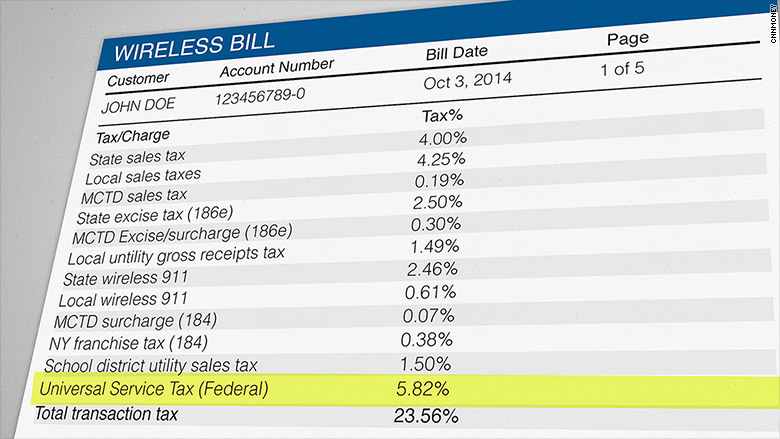
Every month, Uncle Sam adds a 6% tax onto your wireless bill.
It's part of an 81-year old program called the Universal Service Fund, and it's likely to get a makeover on Thursday.
Today, collecting taxes from wireless bills creates an $8.5 billion fund that the FCC distributes to develop broadband service in rural America and to connect schools and libraries. A third part of the USF, set to be revamped this week, subsidizes wireless service for poor people who can't afford to pay their cell phone bills.
About 18 million people who are eligible for food stamps and Medicaid receive $9.25 a month for cell phone subsidies through that USF program known as "Lifeline."
On Thursday, the FCC is voting whether to expand Lifeline by allowing recipients to decide whether to spend that $9.25 on phone service or broadband. With three Democrats sitting on the five-person committee, the new rules are expected to pass.
The Lifeline plan is not without controversy, particularly among conservatives because of its $2 billion annual price tag. It became even more unpopular in the wake of a 2012 corruption scandal in which instances of Lifeline fraud emerged. Cell phone providers were found to be enrolling ineligible people into the program.
Lifeline actually enjoyed bipartisan support at one time. The USF was a New Deal program to help bring phone service to rural America. Lifeline was a Reagan-era initiative that was expanded to include cell phones under President George W. Bush. In recent years, however, conservative politicians and pundits have dubbed it the "Obama phone" program.
Aware that adding more funds to the program would not be politically viable, the FCC proposed to expand the program to include broadband without actually spending more money to do it. The subsidy will remain the same.
But the FCC's vote will nevertheless be an important one.
The USF has succeeded in providing most Americans with access to broadband connections. About 94% of Americans have access to broadband, according to the FCC. Yet 100 million Americans do not have a connection.
A 2013 Pew study revealed that just 70% of Americans have broadband. And the percentage of poor, less-educated populations who connect to broadband is far lower than rich, educated communities.
Just 54% of people who make less than $30,000 a year connect to the Internet via broadband, compared with 88% of people who make more than $75,000 a year. Nearly 90% of college-educated people connect via broadband, but only 37% of high school dropouts have broadband at home.
Even though a growing number of people connect to the Internet through their smartphones, the Pew study showed that 33% of poor people lack any form of Internet connection. That's compared to just 5% of wealthy people who have neither a smartphone nor home broadband service.
Still, smartphone connections tend to be far slower than home Internet connections, so slow that the FCC does not even classify 4G connections as broadband.

